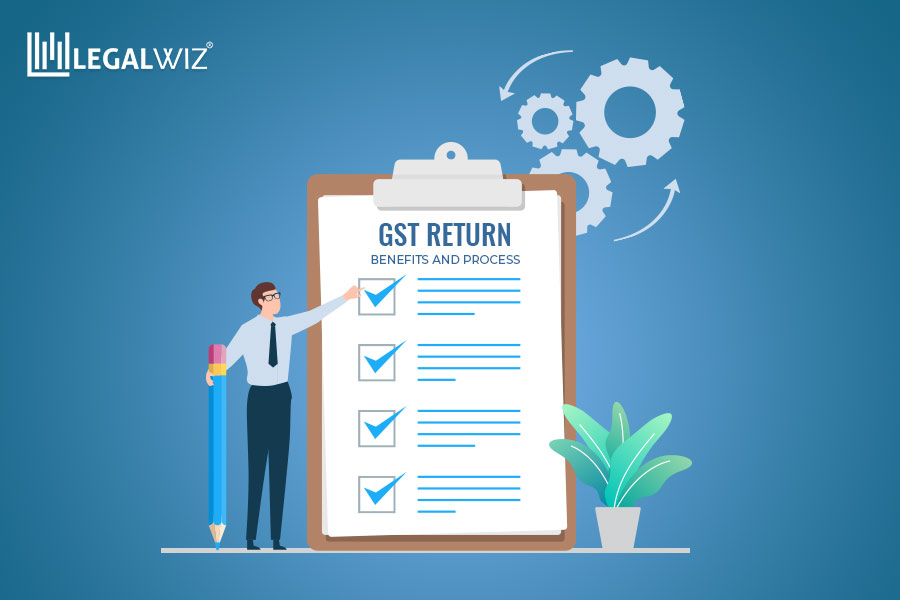To get registered, yourself or your business under the GST system is easy and straightforward. All you need is a decent internet connection and copies of the required documents. Once the authorities authenticate you, you will get your GST number. All this can be done through the GST portal.
The same goes for the GST return online filing. And if you are registered, then submitting your GST return is compulsory. GST almost covers the broad range of indirect taxes in India. Registered suppliers under the system have to meet the compliance desideratum regularly. It will be based on the activities and turnover, a period of filing, and requirements are mentioned in the GST law.
The business owner can submit GST returns online as a taxpayer to make the GSTN (goods and service tax network) wider about outward and inward supplies. With the inclusion of the amount of tax collected and paid. Along with that recorded taxable transaction with the government, the taxpayer is obliged to pay the amount of tax received from the outward supplier of goods and services after deduction of ITC (input tax credit).
Advantages of GST return filing
Every registered person or entity under the GST regime has to file the GST return applicable to them. There are sixteen types of various GST returns. It not only becomes your duty as a citizen to pay the taxes but, it would also help you to garner larger benefits from it as well, especially tax benefits. Online LLP registered company will also be treated as a partnership firm under the GST regime.
– Smooth flow of ITCC
The taxable amount which has been already paid by the supplier is deducted from liability to pay taxes. If paid and received tax transaction is recorded via submitting return by both involved parties, the input tax credit can be handed over to the buyer and not otherwise. If the return is not submitted on time, then the registered person cannot claim the input credit.
– Straightforward form for all taxes
GST regime collects three types of taxes – SGST, CGST, and IGST. Information of all three taxes paid or collected is needed to be recorded in a single form itself. GST regime is working to make online filing more simplified and hassle-free with one form for filing and recording all transactions.
– Achieving a high compliance rating
GST network has invented a compliance rating mechanism by which one can monitor the compliance score. Here, every registered person or entity can check out their compliance score based on their regularity of filing and payment of taxes.
– Avoidance of penalty and interest
If one misses the GST deadline, he/she will be charged a late fee of RS. 50 for each day delay till the actual date of submission. To avoid a penalty, one should file the return promptly. An individual with no tax liability should also have to file a return to avoid a late fee of RS.20 for each day delay. Interest at a rate of 18% P.A is payable on the outstanding liability of tax.
Desideratum to file GST returns online
– Certificate – Registration certificate of GST.
– Log-in credentials – Registered person’s log-in credentials.
– Details of supplies – Details of outward and inwards supplies along with invoice details.
– Digital signature – DSC of an authorized director or partner, in case of online registered LLP or company only.
Every registered dealer (whether normal supplier or otherwise) will have to submit a return based on the business’s transactions or activities. Non-filing of which could lead to default and could attract a penalty of additional fees.
Payment of tax or any mulct can be made via following modes;
– Credit/debit cards.
– Internet banking.
– NEFT or RTGS.
This paid amount will be credited to the electronic cash ledger of the registered dealer.
Information and deets shared while filing the returns will be confidential to the government. Additionally, given data will calculate the taxpayer’s liability, be it an individual, a company or a business having online LLP registration. Filing of returns would also enable you to claim input credit. Regular filing of which will give a higher score on the GST compliance rating.
Taxable events as per the GST Act
Any supplies such as the transfer, sale, exchange, barter, license, lease, rental, or disposal made or agreed to be made for consideration, taxable goods, and services, need to be included as taxable event beneath the GST act.
All the taxpayers submitting the return in GSTR-1 to GSTR-3 except ISD’s, taxpayer under composition scheme, casual/non-resident taxpayers, and TDS/TCS deductors are needed to submit an annual (GSTR-9) along with a monthly return.
Information needed to submit GST return
Mentioned information from invoices, including HSN code regarding the supply of goods and Accounting code concerning the supply of services created, has to be uploaded in return. Also, it should include sales, purchases, and any expenses made during the reporting period.
Conclusion
Following the process mentioned above can help file GST returns easily and help your business reap its full benefits. One can make a wise decision based on that. Registering oneself under the GST regime, paying the taxes promptly with staying on the compliance ladder regularly can yield many benefits to an individual or an entity.

